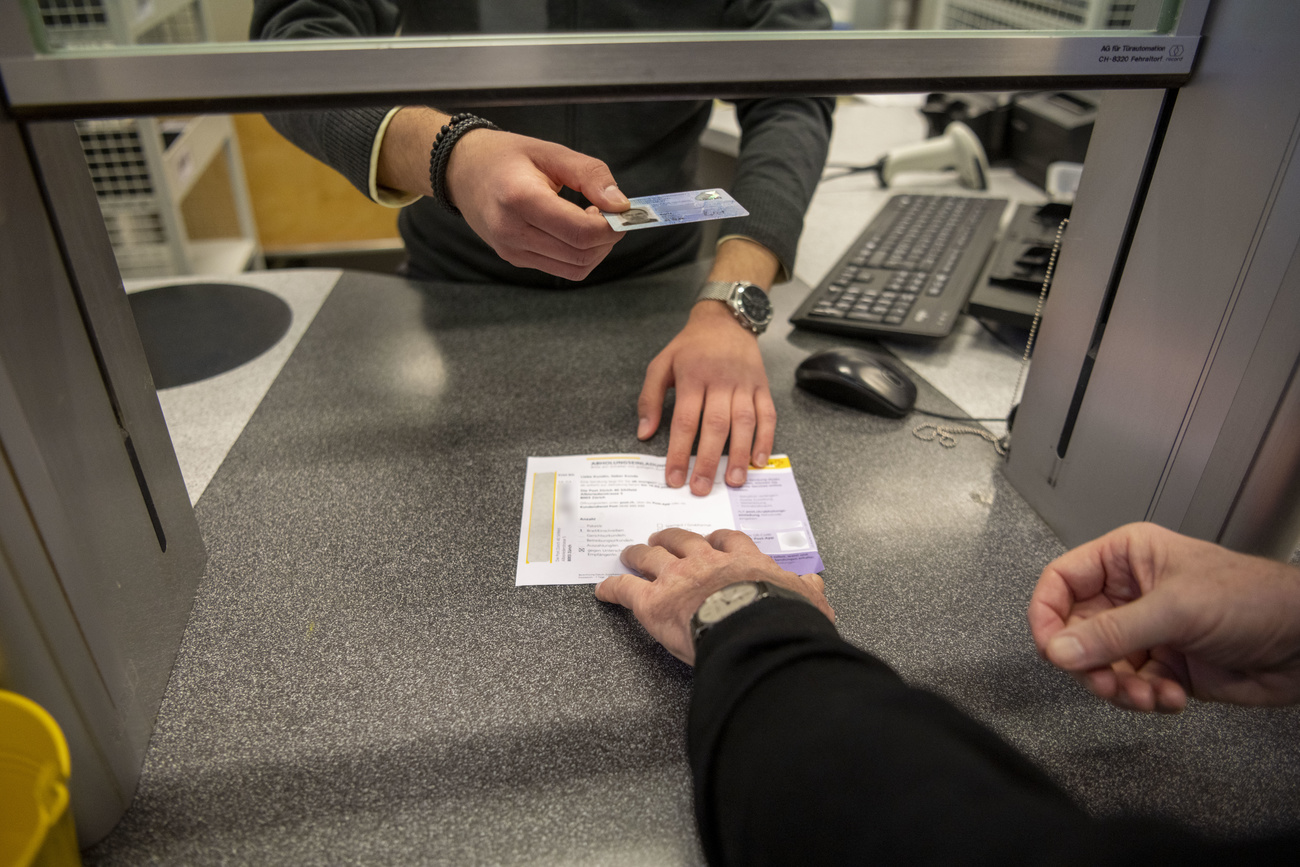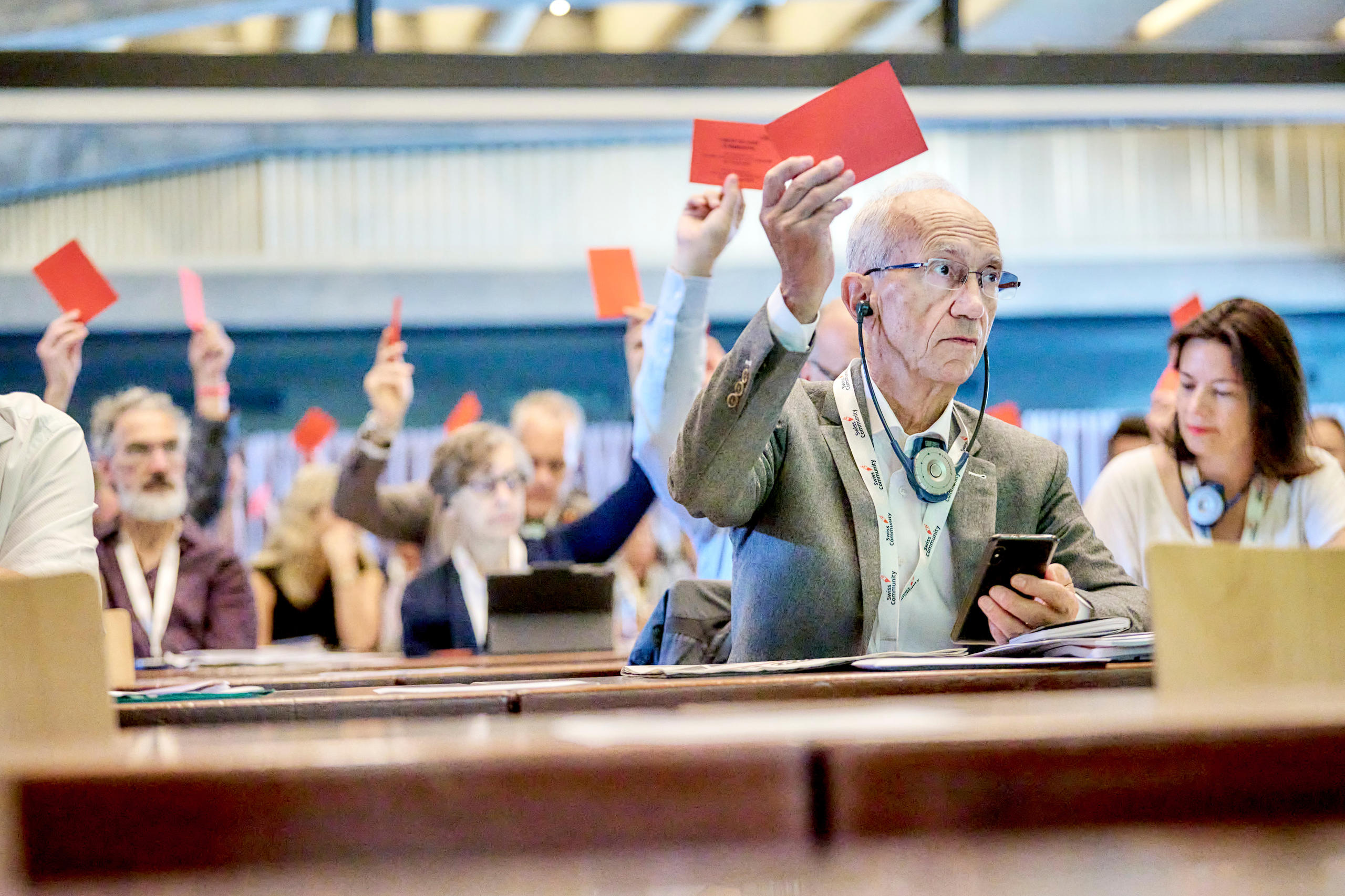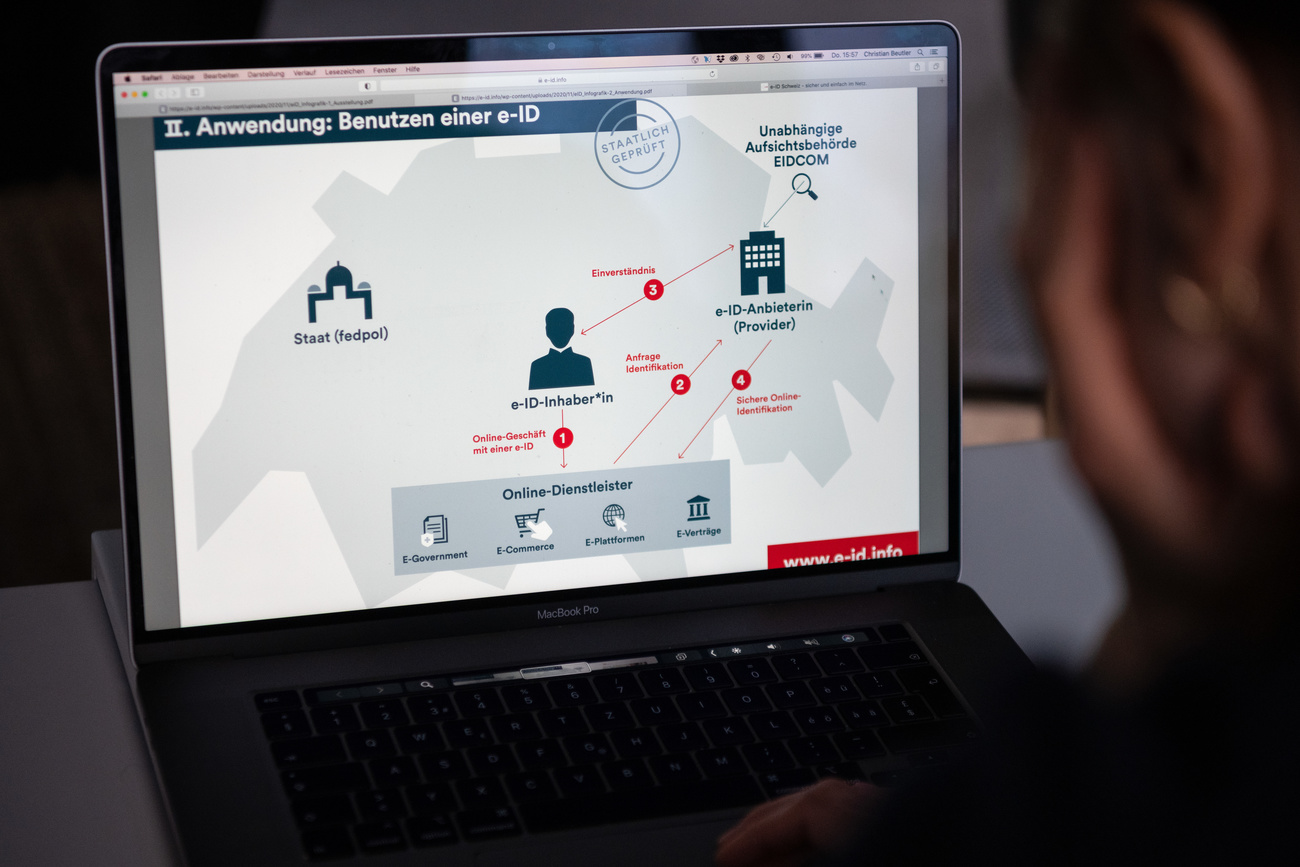Swiss Abroad give a clear ‘yes’ to a digital ID

The Swiss government wants to introduce an electronic identity (e-ID) for citizens. The Organisation of the Swiss Abroad is in favour of the move, saying the e-ID could solve several problems at once.
The proposal to offer Swiss citizens a state-recognised e-ID is now at the draft law stage. But a previous attempt ended in failure.
In March 2021 64% of voters in Switzerland rejected the first proposed law for an electronic identity system over data protection fears.
Many voters were put off by the involvement of private companies in the technology used, fearing that sensitive identity data would be vulnerable to hackers and data giants from Silicon Valley.
To clarify: the e-ID is not a digital passport, but a sort of login for access to various online services.
Second go
The government this year announcedExternal link a second attempt to offer a “secure state electronic identification”, which had the backing of parliament.
To distance itself from first failed attempt, it has been using terms like “new e-ID” or “state e-ID” to underline the sovereignty of the state in the project.
The draft law was ready by the end of June this year. It was then sent out for consultation among political parties, organisations and institutions, as is usual in Switzerland. Critics were also consulted, the aim being to reach as broad a spectrum as possible to avoid a second failure. This consultation process came to an end on October 20.
Swiss abroad support
The Organisation of the Swiss Abroad (OSA) has expressed strong support for the draft law and sees several advantages of an e-ID. A key aspect is facilitating contact with the Swiss authorities from abroad, for example in tax issues or when dealing with health services or local administration. This also applies to banking.

But the main reason the OSA backs the e-ID is that it could form an important building block for a Swiss e-voting system. “The e-ID makes e-voting easier to achieve,” said OSA president Filippo Lombardi back in August, when the delegates of the Swiss Abroad associations met in Lugano.
This sentiment was reiterated in the OSA’s statement on the consultationExternal link, dated October 18. “Secure identification on the internet enables fully digital e-voting procedures,” it wrote.
The organisation, that represents the approximately 800,000 Swiss abroad, emphasised how e-voting was of enormous importance to its community. “Their constitutionally guaranteed political rights are often difficult to exercise in practice because the election and voting documents arrive too late by post, depending on where they live,” the OSA said.
The advantages for banking were also highlighted: “The clear identification of new customers is particularly expensive for banks if [these people] live abroad. Many banks therefore severely restrict their services in this regard.”
An e-ID would make these identification processes easier and cheaper, the organisation said. It added that it hoped “that the Swiss banks will once again grant simplified access to the Swiss abroad”.
For years, the Swiss Abroad have been subject to increasing restrictions on banking services, such as high banking fees, or even the termination of services by the banks.

More
Are neobanks the answer for the Swiss Abroad?
In a third point, the OSA said that an e-ID would also “significantly simplify the provision of e-government solutions and thus make it easier for the Swiss abroad in administrative issues and when contacting the authorities”.
Clarity gained
The clear positioning in favour of an e-ID is new and reflects a development within the organisation. As recently as July 2020, president Lombardi said that the e-ID only had “relative relevance for the Swiss Abroad” and was “not a core business” of the OSA.
This made the organisation cautious in the referendum campaign for the first vote on the e-ID in 2021. Now it seems that OSA has found some clarity on the issue.
With the consultation process now over, the comments and feedback will be incorporated into a report which could contribute to the draft law. After that, any revised law will go to parliament. But it could be that in the end Swiss voters will have the final say on the issue.
Adapted from German by Isobel Leybold-Johnson/as

In compliance with the JTI standards
More: SWI swissinfo.ch certified by the Journalism Trust Initiative














You can find an overview of ongoing debates with our journalists here . Please join us!
If you want to start a conversation about a topic raised in this article or want to report factual errors, email us at english@swissinfo.ch.